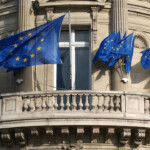“Erdoğan is not judged by or valued for his performance, but as the chosen leader of a group. This explains the support he enjoys. His voters were asked to abandon him; they refused and they renew their alliance.”
The disappointed opposition is trying to understand why the Turkish electorate voted in favor of President Erdoğan when his reign has proven disastrous for the country: High inflation and unemployment, corruption and abuse of law and justice with thousands of victims, repression of free speech, a tense and dangerous foreign policy…the list goes on.
These analyses tend to be directed to the absolute ruler and the measures he has taken to direct and manipulate the public: to his tight and almost total control of the state mechanism and of the media, to his oppressive rule against dissidents, and to his use of economic incentives to direct and mould a positive image of himself and of the overall situation.
The behavior of the voters can be explained as the inevitable result of these policies, but it is also possible to explain Erdoğan as a byproduct of the society itself.
Erdoğan built his career as spokesman and defender of the conservative masses that identified as the oppressed ones vis-à-vis some—real or imagined—privileged elites. These masses are in general more religious, more traditional, less educated and mostly living inland in Anatolia.
The “veil controversy” surrounding women’s attire and the headscarf ban, which shook the country over the past few decades, is an expression of this binary conflict.
Erdoğan was chosen to lead this group of Turks. That is why he is something more than a political figure. He is a leader who has supported a way of living and a group of people who, for a number of decades, felt they had been deprived of equal treatment within their country.
In other words, Erdoğan is not “another” political leader; he is the leader of a specific group of people. This is what “identity politics” means in Turkey. Erdoğan is not judged by and valued for his political performance, but as the chosen leader of a group.
This is what explains his support. His voters were asked to abandon him and they refused; instead they renewed their alliance. They voiced their loyalty to the leader they had chosen—and created. The song that the masses sang in support of Erdoğan mentions “love” for him—not a positive evaluation of his political performance. Love works beyond political performance.
As a consequence of his position, the critiques of Erdoğan created a “boomerang effect”.
In National Myth in Greece (2023), I tried to show how efforts to demonstrate the invalidity of a group’s belief and/or mythology instead results in the reinforcement of it.
Talking about “what Erdoğan has done wrong” has a different ring to his followers. They are being asked to repent, to accept that they have been wrong in their judgment these last two decades, to abandon their group and to align with the “others,” to change camps, to turn their backs on friends and comrades.
In other words, to change an identity that is interwoven with religion.
They are being asked to repent, to accept that they have been wrong in their judgment these last two decades, to abandon their group and to align with the “others.”
The pain caused by taking this step is greater than that caused by a refusal to accept the clear evidence against their leader.
The boomerang effect, as defined by Leon Festinger, precludes the possibility of convincing members of a group to change their opinions and leav their group as a result.
Humans, for the most part, live and operate in groups. Group alliance initiates the boomerang effect, and this effect in turn perpetuates the existence of the group.
Abandoning the group is the exception, and it occurs with members who have the loosest ties. In the elections in Turkey, this group was too small to change the political outcome.
The views and opinions expressed above are the author’s and do not reflect those of the Free Turkish Press.


